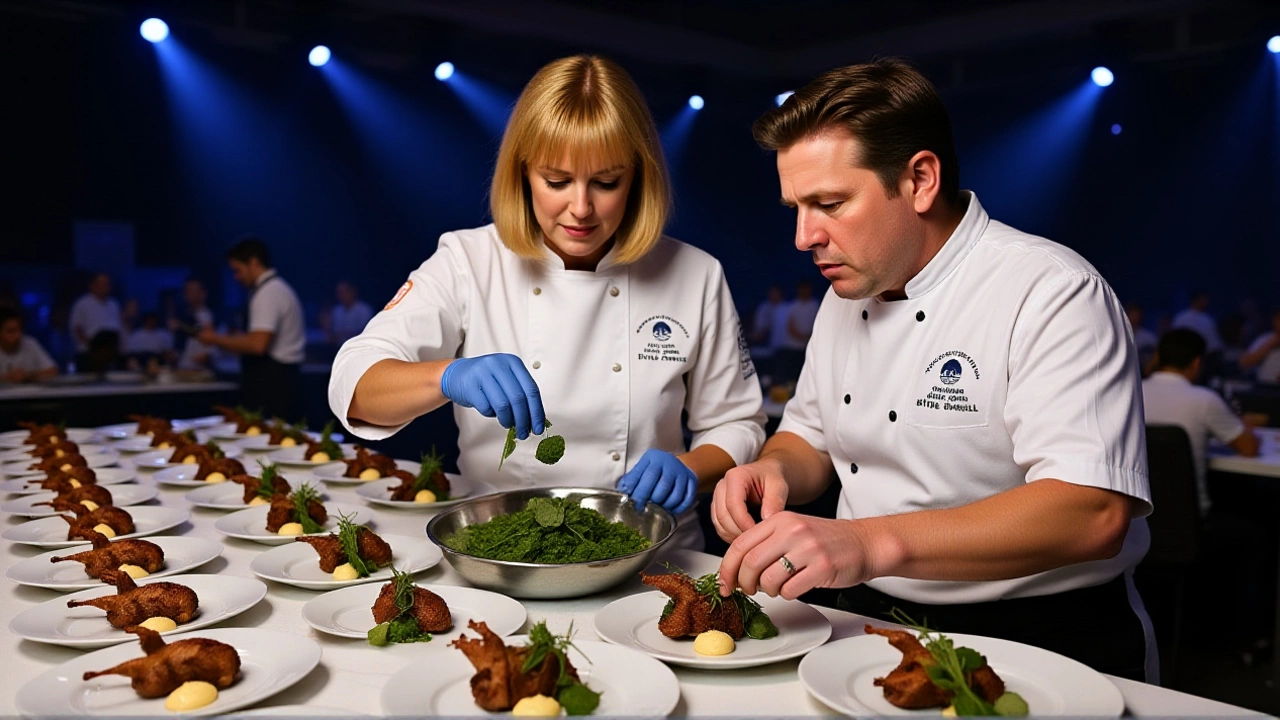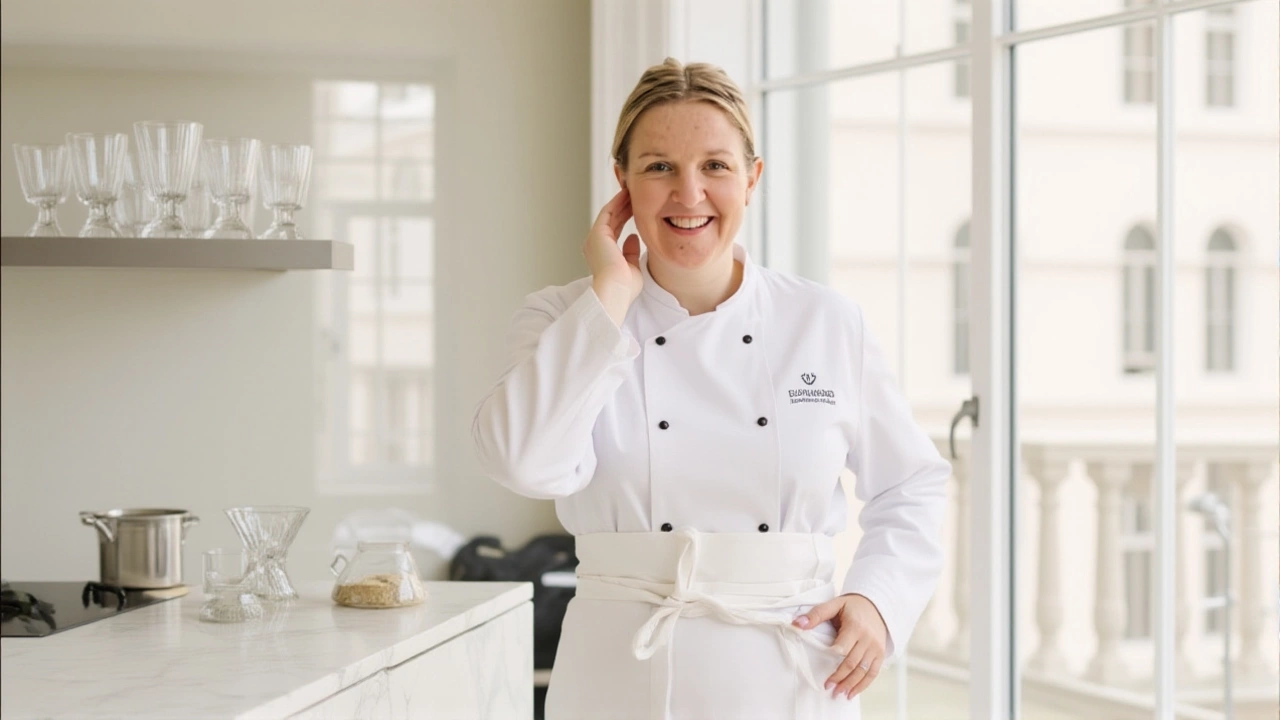When Eleanor Henson stepped into her new role as culinary director of both Heckfield Place and Spring in early 2025, she didn’t just take on more titles—she inherited a mission. For nearly a decade, Henson has been quietly reshaping how fine dining in the UK connects with the land. Now, with control over two of the country’s most respected culinary destinations, her vision is no longer confined to one kitchen. It’s becoming a blueprint.
A Quiet Rise Rooted in Soil and Season
Henson didn’t burst onto the scene with a flashy Instagram reel or a viral TikTok recipe. She showed up at Spring in 2016, straight out of Ballymaloe Cookery School in County Cork, Ireland, with calloused hands and a quiet determination. Back then, she was washing herbs and prepping vegetables. By 2022, she was running the kitchen as head chef. And by 2025, she was overseeing the entire culinary philosophy of two distinct but deeply connected spaces: the lush, 438-acre Heckfield Place in Hampshire, and the elegant, leafy Spring tucked inside Somerset House in London.Her ascent wasn’t about ambition—it was about consistency. She didn’t chase trends. She chased soil. In 2024, she flew to Copenhagen to complete the MAD Academy’s Environment & Sustainability course. That wasn’t a resume booster. It was a turning point. She returned not just with notes, but with a sharper understanding of regenerative systems: how compost feeds microbes, how cover crops protect water tables, how a single farm can become the heartbeat of a restaurant.
Two Kitchens, One Philosophy
What makes Henson’s appointment so significant is how tightly she’s weaving together two very different environments. Spring thrives in the heart of London, sourcing from Fern Verrow, a biodynamic farm in Herefordshire. Heckfield Place, meanwhile, grows much of its own food on Heckfield Home Farm, where pigs root in hedgerows and bees pollinate orchards. Henson’s job now is to make sure the soul of both places sings in harmony."This role really reflects everything I believe in," she said. "The deep connection between land and plate, the importance of sustainable practices and supporting the next generation in the industry. Working directly with Heckfield Home Farm and continuing our partnership with Fern Verrow allows us to showcase how restaurants can be true stewards of the environment while delivering exceptional dining experiences."
That’s not marketing speak. It’s operational reality. Under her leadership, menus now change not just with the seasons—but with the weather, the soil moisture, the bloom cycle of the nasturtiums outside the kitchen door. There’s no longer a distinction between "farm to table" and "table to farm." It’s a loop. A conversation.

Carrying Forward Gyngell’s Legacy
Skye Gyngell, the founder of Spring and a guiding force behind Heckfield’s culinary identity, built her reputation on simplicity: vegetables treated like heroes, herbs picked at dawn, no garnish for show. Henson didn’t reinvent that. She deepened it. Where Gyngell pioneered seasonality, Henson is pioneering regeneration. Where Gyngell honored ingredients, Henson now honors the entire ecosystem that produces them.According to The Staff Canteen, Henson has already restructured the mentorship programs at both venues. Junior chefs now spend a week each quarter working directly with farmers—planting, harvesting, even helping to build compost piles. "You can’t cook what you don’t understand," she told a small group of staff in January. "If you don’t know how the carrot grows, you’ll never know how to roast it right."
The Ripple Effect
Henson’s promotion isn’t just about two restaurants. It’s about signaling to the wider industry that luxury hospitality can—and must—be regenerative. In a sector where five-star often means excessive waste, Henson is proving that elegance and ethics can coexist. Heckfield Place is already being cited by sustainability consultants as a model for other luxury hotels. And Spring, long a darling of food critics, is now seen as a living laboratory for urban sustainability.Her nomination as Rising Star at the National Restaurant Awards in January 2025 wasn’t a surprise to those who’ve watched her work. It was a recognition that the future of fine dining isn’t in Michelin stars alone—it’s in soil health, biodiversity, and the quiet courage to serve food that doesn’t cost the earth.

What’s Next?
Henson is now developing a new training module for chefs across the UK, titled "From Soil to Service," set to launch in late 2025. She’s also working with the Heckfield estate team to open a small educational farm shop at the property, where guests can buy produce and learn about regenerative practices firsthand. Meanwhile, Spring’s spring menu—scheduled for release in April—will feature a new section called "The Farm Diary," detailing exactly which fields supplied each ingredient, down to the plot number.It’s not just a menu. It’s a map. And Henson is drawing it, one carrot, one egg, one handful of thyme at a time.
Frequently Asked Questions
How does Eleanor Henson’s role differ from her previous position as head chef?
As head chef of Spring from 2022 to 2025, Henson managed only that kitchen. As culinary director, she now oversees the full culinary vision—including menu design, staff training, and supplier relationships—for both Spring and Heckfield Place. She’s no longer just executing recipes; she’s shaping the philosophy and sustainability strategy across two distinct properties.
Why is Heckfield Home Farm so important to Henson’s approach?
Heckfield Home Farm, located on the same 438-acre estate as Heckfield Place, produces over 60% of the hotel’s ingredients. Henson works directly with the farm team to align planting schedules with kitchen needs, reducing transport emissions and ensuring peak freshness. This integration allows her to test regenerative techniques—like rotational grazing and no-till planting—in real time, making the kitchen an active participant in land stewardship.
What impact has Henson had on sustainability at Spring in London?
Since becoming head chef in 2022, Henson reduced Spring’s food waste by 42% and eliminated single-use plastics entirely. She also shifted 95% of produce sourcing to certified biodynamic or organic farms, primarily Fern Verrow. Her 2024 MAD Academy training helped her implement a closed-loop composting system that now feeds back into the farm’s soil.
How is Henson mentoring the next generation of chefs?
Henson requires all junior staff to spend one week per quarter working directly on partner farms like Fern Verrow and Heckfield Home Farm. She also launched a monthly "Farm to Fork" workshop series, where chefs present dishes made from ingredients they harvested themselves. The goal? To instill a deep, visceral understanding of where food comes from—not just as a skill, but as a responsibility.
What makes Henson’s vision different from other sustainable chefs?
Many chefs focus on sourcing better ingredients. Henson focuses on changing the system that produces them. She doesn’t just buy from regenerative farms—she helps design their planting cycles, advises on soil health, and even co-publishes annual impact reports with the farmers. Her work blurs the line between chef and land manager, making the kitchen a hub of ecological restoration, not just a place to cook.
Will Henson’s model be replicated elsewhere?
Yes. Hospitality groups from Scotland to the Cotswolds have already reached out to study Heckfield’s model. Henson is developing a free open-source toolkit called "The Regenerative Kitchen," launching in 2026, to help independent restaurants adopt her practices. It’s not about copying her menu—it’s about copying her mindset: that every plate should give back more than it takes.

